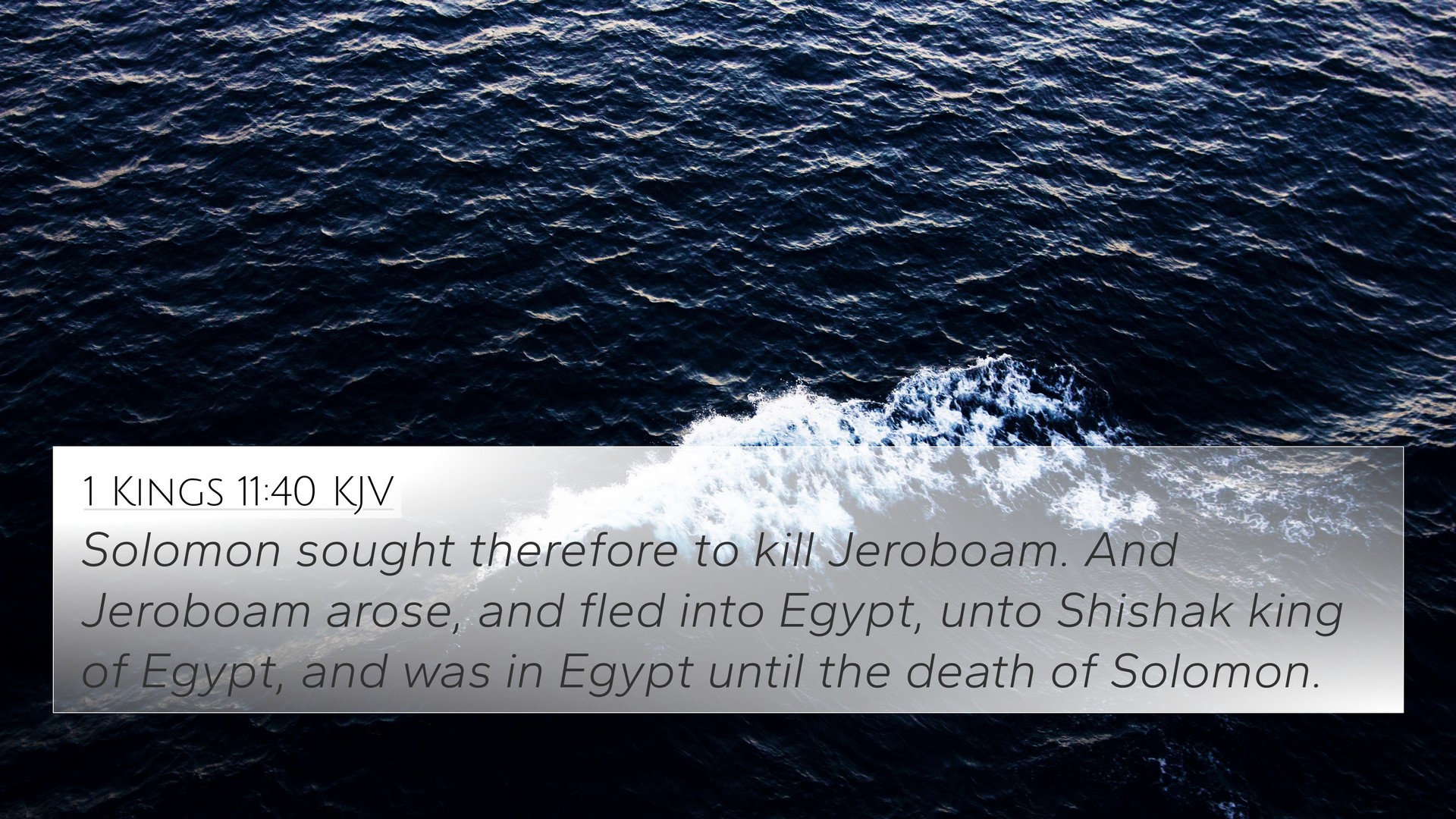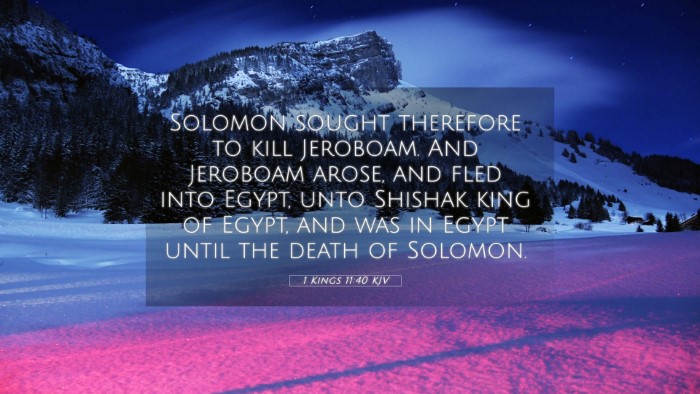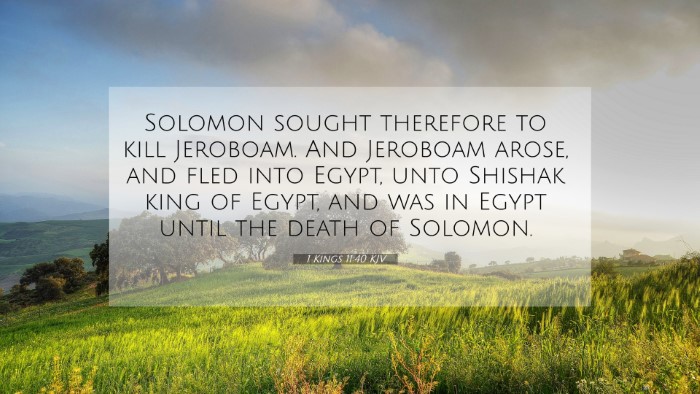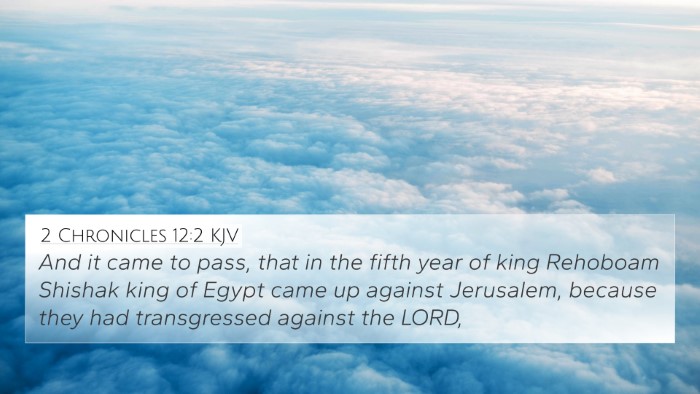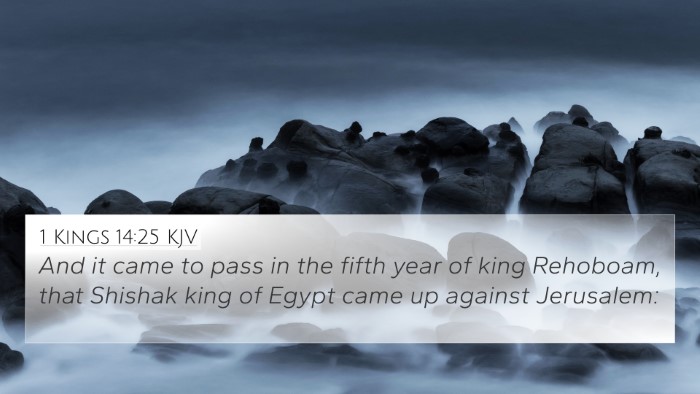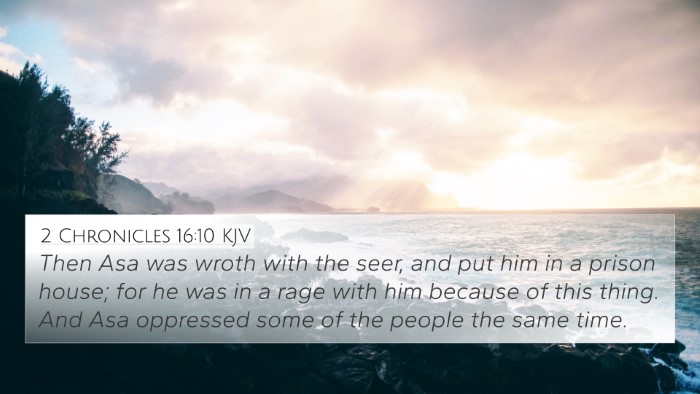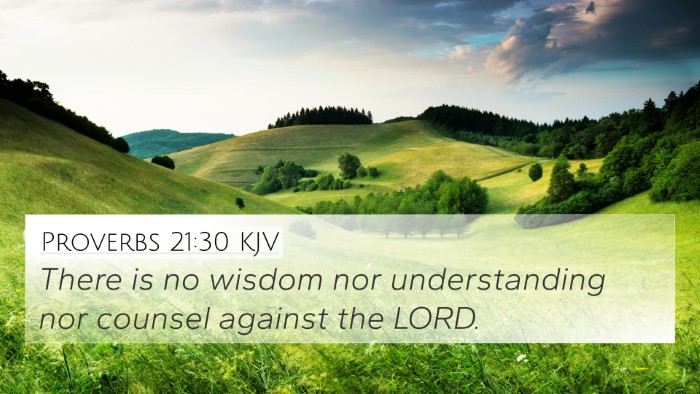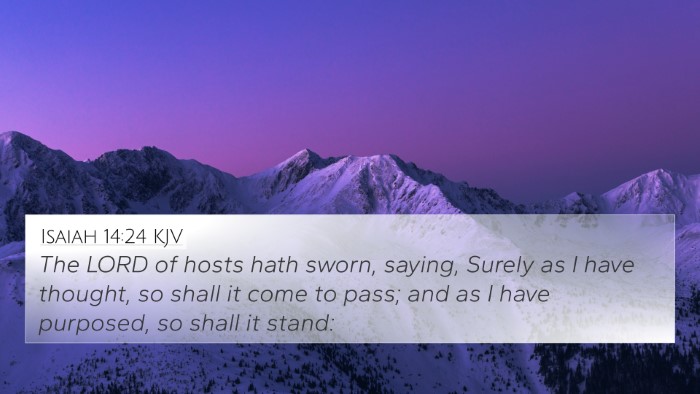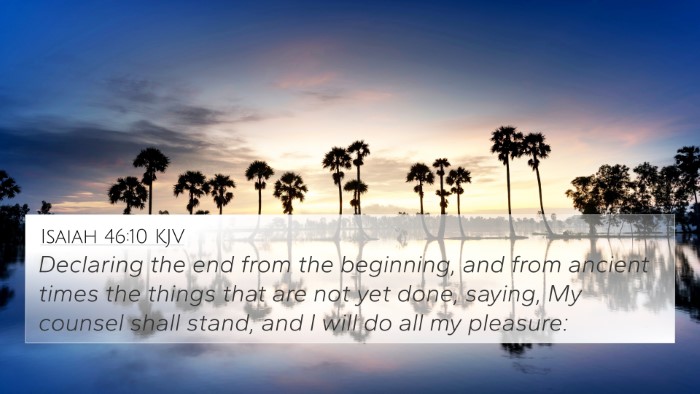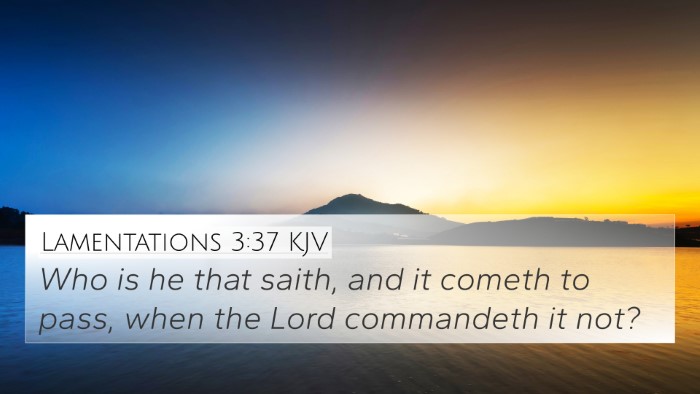Understanding 1 Kings 11:40
Bible Verse: 1 Kings 11:40
“And Solomon sought therefore to kill Jeroboam. And Jeroboam arose, and fled into Egypt, unto Shishak.”
Overview
This verse marks a significant moment in the narrative of Solomon's reign and the emergence of Jeroboam as a pivotal figure in Israel's history.
Commentary Insights
-
Matthew Henry:
Henry points out that Solomon's desire to kill Jeroboam stems from the prophetic warning that Jeroboam would become a ruler over part of Israel. This shows Solomon's fear of losing his power and kingdom. The act of seeking Jeroboam reflects a desperate attempt to preserve his reign but ultimately reveals the instability of his rule.
-
Albert Barnes:
Barnes interprets this verse as indicative of Solomon’s moral decline. Instead of relying on God, Solomon is shown taking violent measures against a potential challenger. The flight of Jeroboam to Egypt signifies a common refuge for those escaping persecution, highlighting the political turbulence in the nation.
-
Adam Clarke:
Clarke comments on the escalation of Solomon's fears leading to irrational actions. His desire to kill Jeroboam can be viewed as a manifestation of the consequences of his turn towards idolatry and moral failure. Jeroboam's escape to Egypt is significant as it suggests that even in the face of oppression, opportunities for deliverance exist through divine providence.
Cross-References
This verse connects with several other passages that explore themes of power, rebellion, and divine intention:
- 1 Kings 11:29-39 - Prophecy about Jeroboam's future leadership.
- 1 Kings 12:1-24 - The division of the kingdom under Rehoboam and the fulfillment of the prophecy.
- 2 Chronicles 9:29-31 - A retrospective on Solomon’s reign and his legacy.
- Exodus 2:15 - Moses fleeing to Midian parallels Jeroboam's escape to Egypt.
- Matthew 2:13-15 - Jesus fleeing to Egypt, highlighting Egypt's role as a place of refuge.
- 1 Samuel 15:23 - God's rejection of Saul as king due to disobedience parallels Solomon’s actions.
- Romans 13:1 - God's sovereignty over earthly kings in the context of rebellion.
Thematic Connections
This verse illustrates the conflicts surrounding leadership and authority within biblical narratives. The thematic connections between different scriptures can help reinforce the moral lessons regarding the consequences of sin and the importance of reliance on God.
Conclusion
1 Kings 11:40 serves not only as a historical account but as a reflective piece on the ethics of leadership and divine justice. The actions of Solomon and Jeroboam set the stage for the complex political landscape in Israel's history, encouraging readers to explore the broader implications of these events through cross-referencing and comparative analysis of related scripture.
Further Study
To gain a deeper understanding of the connections between the verses, readers can utilize various tools for Bible cross-referencing, including:
- Bible concordances to find related themes and keywords.
- Bible cross-reference guides that illuminate links between different passages.
- Cross-reference Bible study methods for a comprehensive analysis of scripture.
- Bible reference resources that provide clarity on historical and theological contexts.
- Materials that explore Bible chain references for thematic studies.
Additional Resources
Those interested in enhancing their study of the Bible can also explore:
- How to find cross-references in the Bible effectively.
- Identifying connections between Old and New Testament teachings.
- A comparative study of Pauline epistles in relation to Old Testament narratives.
- Cross-referencing themes in the Psalms with New Testament teachings.
- Resources for preparing sermons that include cross-referenced Bible verses.
